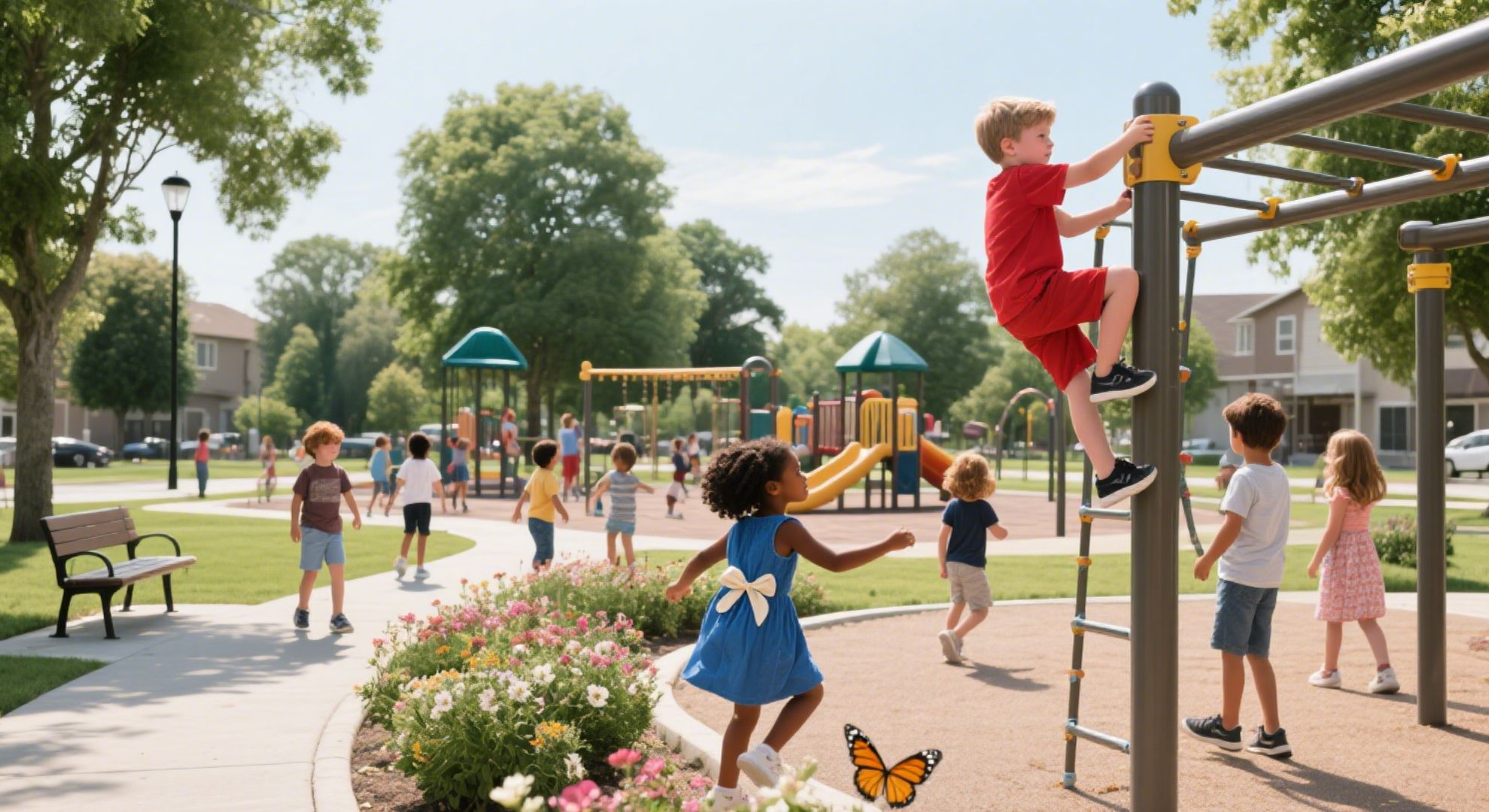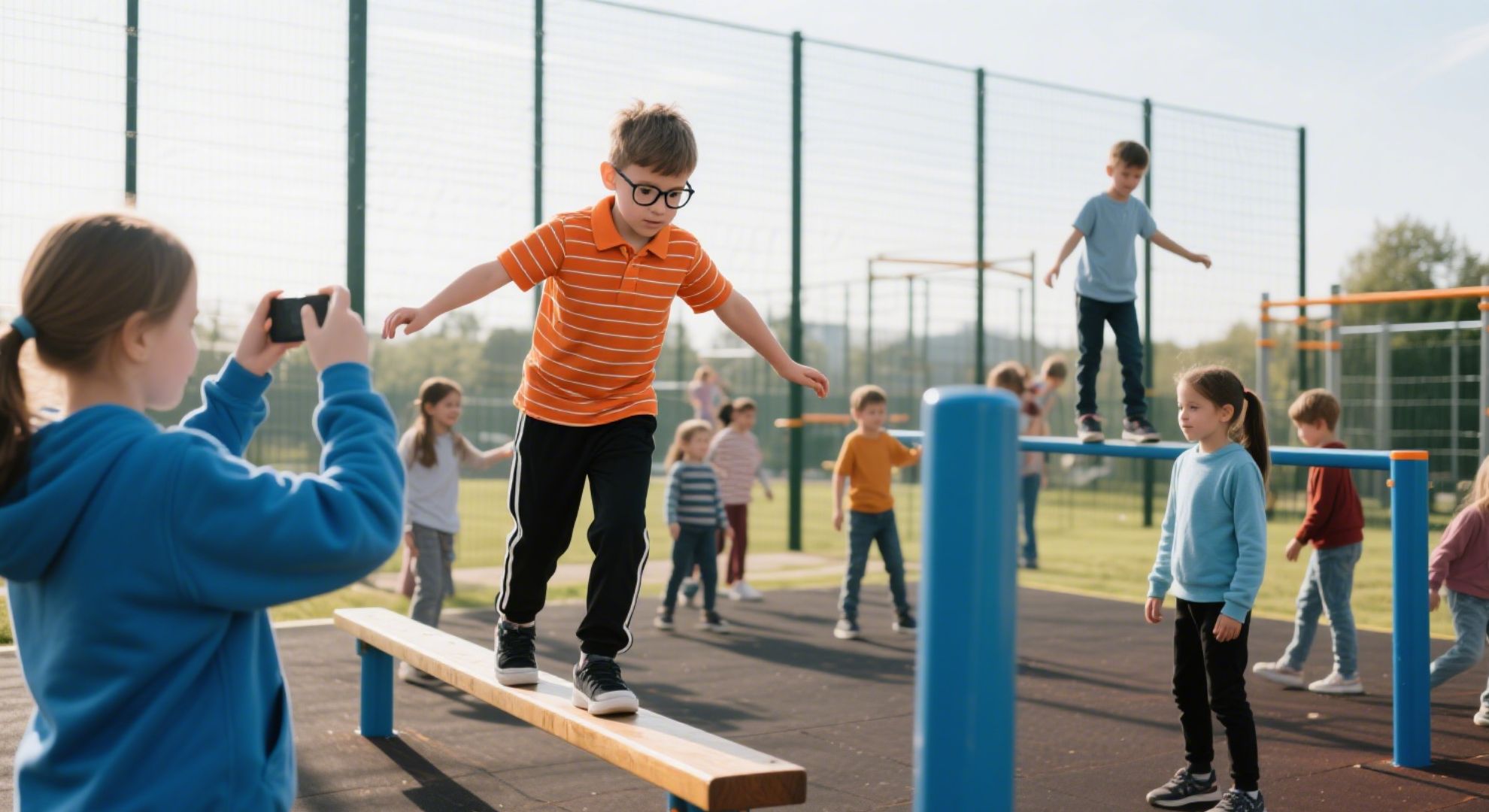How Playgrounds Help Children Improve Social Skills?
2025年6月27日 / By SafeKidsPlay
When parents and educators think of playgrounds, they often imagine laughter, climbing, and running. But beyond the physical fun, playgrounds are powerful environments for developing one of the most crucial life skills: social interaction. As a playground equipment manufacturer, we understand that well-designed play spaces do more than entertain—they actively shape a child’s ability to connect with others.
Why Social Skills Matter in Childhood
Social skills—like sharing, listening, taking turns, and resolving conflicts—are the foundation of healthy relationships and emotional well-being. These skills not only influence childhood friendships but also impact academic performance and future success in adulthood. According to child development experts, play is a natural context where children practice these behaviors in a low-pressure, engaging setting.
How Playgrounds Foster Social Skill Development
1. Encouraging Cooperative Play
Features like seesaws, group swings, and climbing nets require teamwork and mutual participation. These elements promote:
-
Communication and negotiation
-
Turn-taking and patience
-
Shared goal-setting
2. Supporting Role Play and Imaginative Interaction
Themed playgrounds, such as castles or pirate ships, spark role-playing games. These scenarios help children:
-
Express emotions and ideas
-
Practice empathy by “stepping into” different characters
-
Learn social scripts and conflict resolution
3. Facilitating Peer Problem-Solving
Disagreements often arise on the playground—but that’s not a bad thing. A well-balanced play environment gives children opportunities to:
-
Navigate conflict in real time
-
Develop self-regulation
-
Understand others’ perspectives
4. Creating Inclusive Opportunities
Modern playground designs include equipment accessible to children of all abilities, encouraging inclusion. Inclusive play fosters:
-
Acceptance of diversity
-
Leadership and helping behavior
-
Broader social circles
The Role of Playground Design in Social Growth
Not all play spaces are created equal. The layout and types of equipment play a direct role in how children interact. Thoughtfully zoned areas—such as quiet corners for introverted children and open spaces for group activities—ensure every child can engage comfortably.
As a playground equipment manufacturer, we specialize in crafting environments that stimulate social learning. Our designs integrate:
-
Multi-child apparatuses for group interaction
-
Sensory play elements for inclusive engagement
-
Safe zones for self-directed negotiation and collaboration
Key Features to Look For in Socially Supportive Playground Equipment
When choosing playground equipment that promotes social growth, consider:
-
Interactive Units: Multi-user spinners, group seesaws, or tandem swings
-
Imaginative Zones: Structures like playhouses, themed towers, or story-themed sections
-
Inclusive Design: Ramps, transfer stations, and ground-level activities
-
Flexible Spaces: Areas that adapt to both solitary and group play
Final Thoughts
Playgrounds aren’t just places to burn off energy—they’re early classrooms for life. High-quality, intentionally designed play environments give children the tools they need to build confidence, empathy, and communication skills.
By investing in well-designed playground equipment, communities, schools, and developers aren’t just installing play structures—they’re nurturing tomorrow’s leaders.
Looking to create a socially enriching playground space?
Partner with us to build equipment that inspires not just play—but connection, growth, and lifelong skills.

